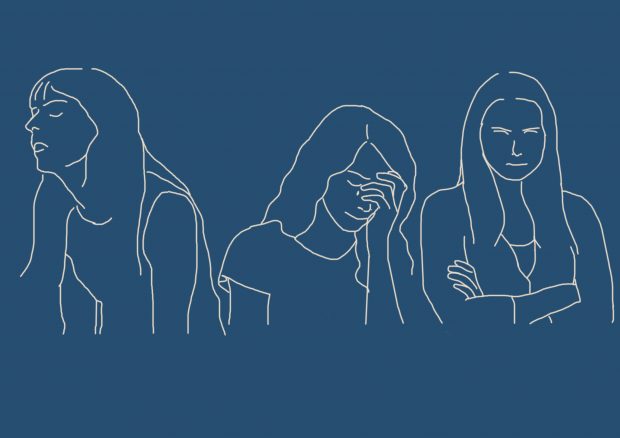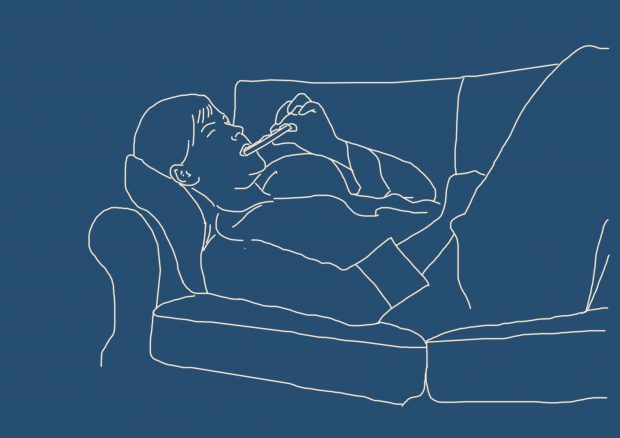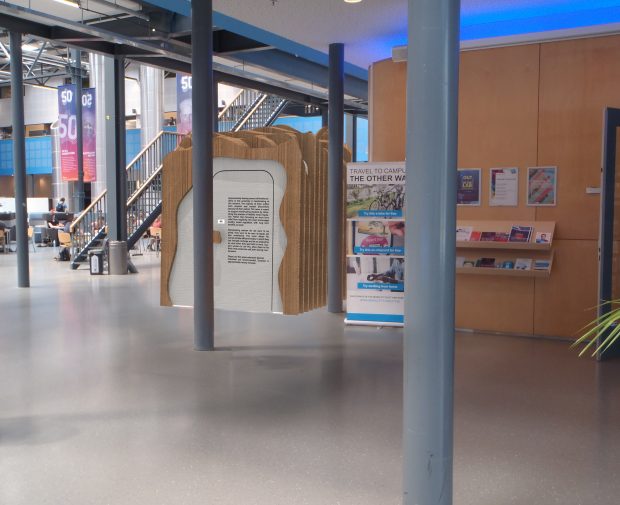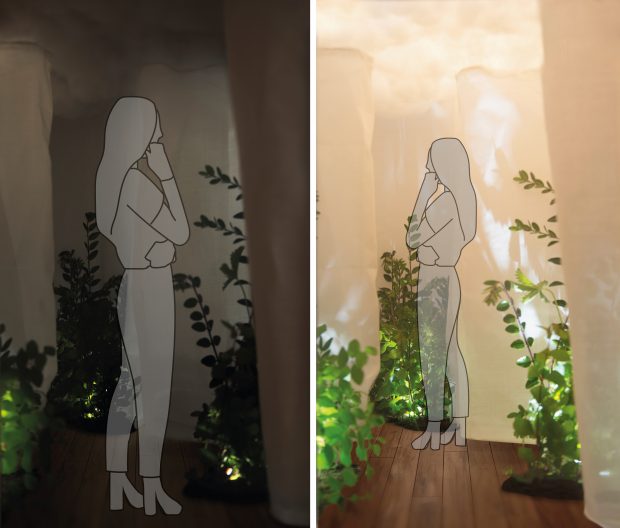At universities, approximately 20% of all female students is menstruating at any given time., many of them battling with both physical and psychological discomfort. 50 to 90% of all women suffer from primary dysmenorrhea during their menstruation, which means they suffer from pelvic and abdominal pain, otherwise known as menstrual cramps. The psychological discomfort menstruating women experience is even more complicated, many women experience a more negative mood, mood fluctuations, lack of concentration and so on.

Figure 1: negative moods and mood fluctuations as a result of menstruation
Surrounded by my peers at Industrial Design Engineering at the Technical University of Delft, I have noticed that the main advice given (and practised) amongst female students regarding menstruation is “eat lots of chocolate and spend your evenings watching series in bed”. It is quite unlikely that these activities are healthy coping mechanisms, since these are mainly relief-focused mood-regulation strategies, which are known to only have a short-term effect on moods, as opposed to resilience-focused mood regulation strategies, which have long-term benefits and are therefore a healthier way of coping with menstruation.

Figure 2: the main menstruation coping mechanism: eating chocolate
Literature research and a field study (sensitizing booklets, interviews, questionnaire and focus group) conducted in this project showed that menstruation is very negatively experienced by women, regardless of how heavy their menstruation is experienced.
Their moods are mostly influenced by pain and the inconvenience of bleeding, while the study also showed that the biggest obstacle in daily life is the fluctuating moods caused by hormones. These fluctuations exist in personal patterns, but no literature nor this project’s field study shows universal patterns in mood fluctuations.
The most practised mood strategies are rest, withdraw and repress. The study shows that female students do not want to show weakness, they want to work as well as they normally do at university and take painkillers to do so. They ignore all other struggles which tends to exhaust them, resulting in a lack of energy when they arrive home. This is when they finally rest and withdraw, as desired.

Figure 3: Mood Booth placed in the faculty of Industrial Design Engineering of TU Delft
The product ‘Mood Booth’ as a solution to these problems. The Mood Booth is a room, centrally placed in every university, for menstruating students to withdraw in. The room is designed for these students to perform a ritual in. This ritual is based on the two resilience-focused mood-regulation strategies most valuable to most menstruating women: embrace (embracing and accepting moods) and detach (distinguish between self and mood and engagement in mindfulness). The design of the Mood Booth’s interior stimulates the practise of these two mood regulation strategies in a twenty-minute ritual, which is guided by light changes. A visit to the Mood Booth should result into a more positive mood, a calmer state of mind and more strength on the long-term to benefit both the academic performance and the quality of personal time during menstruation.

Figure 4: the embrace (left) and detach (right) phases of the ritual in the Mood Booth
The outside of the Mood Booth is a statement, through both location and through the message on the front of the Mood Booth, against the stigma attached to menstruation.
The Mood Booth aims to improve moods and does so by stimulating resilience-focused mood-regulation strategies, which answers closely to the design brief. The Mood Booth is also created to answer to the issues found in the research, while also tackling the stigma around menstruation.
The Mood Booth is a very public statement within a university. The final test shows that male students are unaware of female students being on their period, which is unsurprising since female students tend to not use it as an excuse because they fear to look weak. The Mood Booth should serve as a conversation starter surrounding the topic of menstruation and help women (and men) to not see shame or weakness in menstruation.



